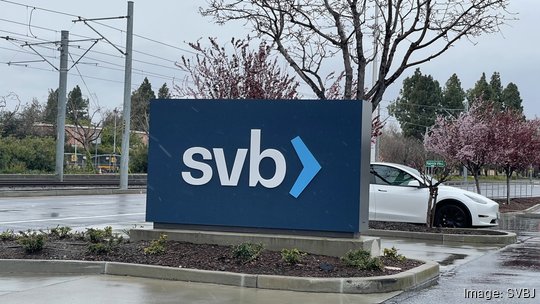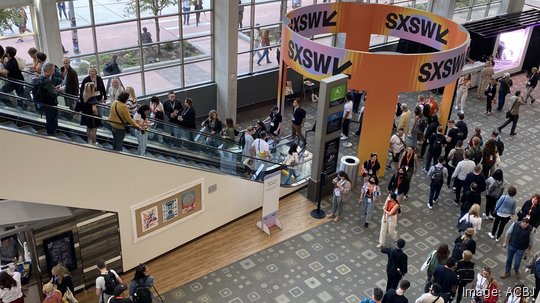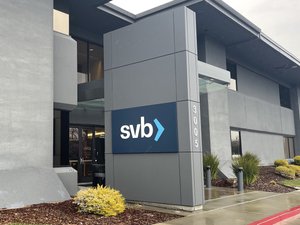
The announcement Sunday night that federal regulators would protect all deposits at Silicon Valley Bank in the wake of its collapse sparked revelry at the SXSW Conference in Austin akin to a Philadelphia sports championship celebration on Broad Street, said Greg Seltzer, co-leader of Ballard Spahr’s emerging growth and venture capital group.
That jubilance replaced the dark cloud that had settled over the tech conference as startup founders, advisors and venture capital firms spent much of the weekend scrambling to figure out what would happen to the money they had tied up in Silicon Valley Bank. Seltzer arrived at the conference Saturday after Ballard Spahr formed an emergency task force that worked through the night on Thursday and Friday to help clients prepare for the ramifications of the bank's failure.
Sunday's celebrations were short-lived.
"CEOs and founders are now buckling down with advisors and strategizing," Seltzer said. "It went from distressed to euphoric to strategic."

Silicon Valley Bank, which has an office in Conshohocken, carved out a niche in the banking industry by investing in startups when other banks didn't want to take the risk. It became a go-to resource for the industry. Panic set in late last week with the bank's announcement that it planned to raise $2.25 billion after losing $1.8 billion following the sale of securities. A bank run followed, with depositors pulling out $42 billion on Thursday. The federal government announced the closure of the bank on Friday, and on Sunday night said that it had taken steps to ensure all depositors with the bank would have full access to their money.
Longtime veterans of Philadelphia's startup ecosystem are advising startup C-suites to be nimble and cautious as uncertainty persists. Tech leaders are saying a handful of companies in Philadelphia were affected, including at least five local life sciences companies.
"Did it affect every company in Philadelphia? Absolutely not," said Dean Miller, CEO of Philadelphia Alliance for Capital and Technologies (PACT). "In our region, they definitely had a significant penetration among life sciences companies and among tech companies that are breathing a sigh of relief that their money is accessible. The bigger question is, where do we go from here?"
With the aftermath of Silicon Valley Bank's collapse still taking shape, members of the tech industry are largely in wait-and-see mode. However, Seltzer said that in his conversations with startup clients, his message has been to "prepare for the worst."
"My clients and the customers of the bank should be okay," Seltzer said. "What should the concern be? Is this bank failure going to have a wider impact, a broader impact on the startup and venture capital community? The fundamentals are really split on that and there's no right answer."
Seltzer said the startups that are most affected are those at the end of their runway of capital from a financing round that closed in 2022 and are preparing to raise their next round. He said Silicon Valley Bank was instrumental in lending venture debt capital to startups in between funding rounds.
"The concern and fear with the Silicon Valley Bank failure is that deals will slow down specifically in terms of VC willingness to fund startups," Seltzer said.
Ellen Weber, the executive director of Greater Philadelphia angel investment group Robinhood Ventures, said that about four of the 25 companies she heard from in the firm's portfolio had money tied to Silicon Valley Bank. For all of the startups in the portfolio, Robinhood is advising them "to take a look at what will get them through the next 18 months." Weber said that based off of the current fundraising environment, the firm was already working on a strategy that focused on follow-on funding for existing portfolio companies, rather than investing in new startups.
"The climate was already difficult to raise that next round, our concern is that this will make a difficult time even more difficult," Weber said. "I’m not sure what the outlook is, but it creates even more fear, uncertainty and doubt. Uncertainty is not the friend of startups."
Weber equated the current landscape to the period from 2008 to 2010, saying that recession pushed back the timeline for exits, but the companies who made it through the first 18 months usually persisted.
In the short term, Seltzer is advising clients to spread their capital out between two or three banks if possible. Miller's advice to startup CEOs was similar. He said they need to work with their finance teams to reassess capital strategies and the risks associated with them.
Though both Miller and Seltzer have been fielding non-stop calls from frantic venture capital firms and startup CEOs since Friday, both are optimistic that the Silicon Valley Bank saga will not be catastrophic for the industry. Miller said the overhang — the amount of capital available in the market — is relatively unchanged. There's funding to be raised, but if investors see it as a sign of a fragile startup industry, the pace of investment could slow.
"I am hopeful that this is isolated," Miller said. "I am optimistic that it's isolated and that it will not change the pace of innovation nor rattle that innovation engine that has grown so significantly here in the Philadelphia region."







